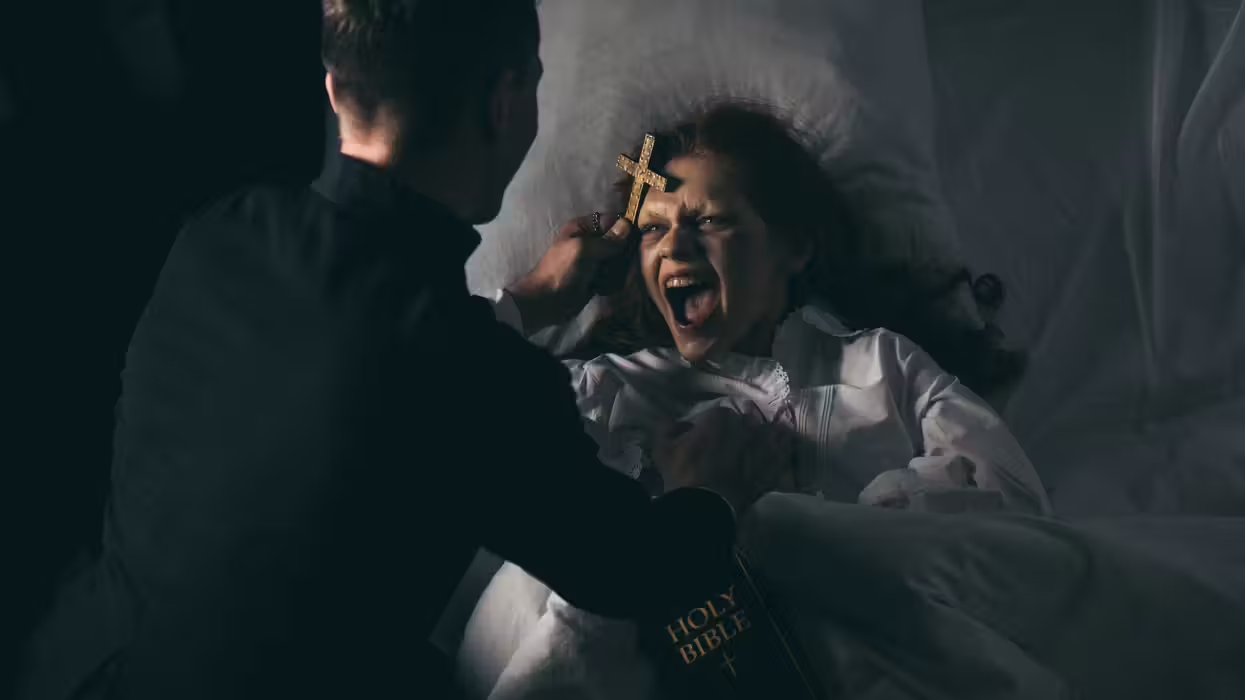
© 2025 Blaze Media LLC. All rights reserved.
In an era when most black votes in the South were suppressed, other observers felt Coolidge might have, indeed, received more—and he deserved them.
 30th President of the United States Calvin Coolidge gets set to throw out the first pitch of the 1924 World Series (Photo by AP.)
30th President of the United States Calvin Coolidge gets set to throw out the first pitch of the 1924 World Series (Photo by AP.)
Recently, Politico ran an article piquantly entitled “Calvin Coolidge, civil rights pioneer?”
One might surmise such an opinion piece might be penned by Amity Shlaes, author of the recent best-selling biography of Silent Cal—but even more remarkably it had been authored not by the ubiquitous Ms. Shlaes but by Kurt L. Schmoke, the black former Democratic mayor of Baltimore.
Schmoke, taking note of Senator Rand Paul’s April visit to Howard University, reminded readers of Coolidge’s June 6, 1924 commencement address there. “Coolidge gave the commencement . . .,” noted Schmoke, now vice president and general counsel at the school, “and signaled a significant change in progressive race relations. In reading his words it must be recalled that he spoke at a time when separate but equal was the law of the land, when lynchings trumped due process in criminal cases involving black men, and when the most recent Democratic president, Woodrow Wilson, had praised a film which glorified the Ku Klux Klan.”
Coolidge’s appearance was certainly noteworthy—and his remarks were certainly more engaged and enthusiastic than those of his successor, Herbert Hoover, four years later. But to more fully recount the story of “Calvin Coolidge, civil rights pioneer” one must jump forward a few months and examine the now largely-forgotten—but quite significant—case of President Calvin Coolidge, Dr. Charles H. Roberts, and Sgt. Charles F. Gardner.
In August 1924, Harlem Republicans nominated a black dentist and former city alderman, Dr. Charles H. Roberts, for Congress in New York’s 21st District. As the black newspaper, The New York Age, noted, “for the first time in the history of the Republican party, a Negro has been named as candidate for election to Congress from a northern city.” Not everyone approved. Among the critics was Army Sgt. Charles F. Gardner, stationed at Brooklyn’s Fort Hamilton. Gardner, not revealing his army status, wrote to Coolidge in protest.
Coolidge had little use for such bigotry. In April 1915, as president of the Massachusetts Senate, he had cast the deciding vote to ban D. W. Griffith’s The Birth of a Nation after race riots greeted its Boston premiere. “The Boston triple censor bill advocated by opponents of the ‘Birth of a Nation’ came within an ace of striking a bad snag in the Senate yesterday,” noted The Boston Post, “Only the action of President Coolidge in ordering his name called during a roll call prevented a reconsideration of the vote on Monday . . .”
As historian Alvin S. Felzenberg noted: “The Klan forced itself onto Coolidge’s attention in the fall of 1923 when it instigated violence in Omaha . . . Nebraska governor [Democrat Charles W. Bryan] declared martial law, complaining that ‘unmentionable mutilations have been conducted upon numerous citizens . . . scores of others have been taken from their homes at night and beaten and flogged in a most unmerciful way. The majority of the lower house are Klansmen.’ A group of pro-KKK state legislators forced Coolidge’s hand when they tried to hold a session in a federal building to impeach the Governor. Calling the Governor a Bolshevik, some Republican activists urged Coolidge to stay out of the matter. After [Coolidge’s Secretary C. Bascom] Slemp denied the Klansmen permission to use the site, one newspaper ran a picture of the president beneath the words ‘He Intervenes.’” On another occasion Slemp pointedly noted that Coolidge was “not a member of the order and is not in sympathy with the aims and purposes.”
Regarding Dr. Roberts’ Harlem congressional bid, Coolidge responded to Sgt. Gardner on August 9. Two days later he released his response to the press. Said the black Brooklyn Daily Times: “The President has made the clearest, quietest and most convincing statement on this subject yet made."
Coolidge, palpably livid with rage, wrote:
My dear sir,Your letter is received, accompanied by a newspaper clipping which discussed the possibility that a colored man may be the Republican nominee from one of the New York districts. Referring to this newspaper statement, you say:
“It is of some concern whether a Negro is allowed to run for Congress anywhere, at any time, in any party, in this, a white man’s country. Repeated ignoring of the growing race problem does not excuse us for allowing encroachments . . ."
Leaving out of consideration the manifest impropriety of the President intruding himself in a local contest for nomination, I was amazed to receive such a letter. During the war 500,000 colored men and boys were called up under the draft, not one of whom sought to evade it. They took their places wherever assigned in defense of the nation of which they are just as truly citizens as are any others. The suggestion of denying any measure of their full political rights to such a great group of our population as the colored people is one which, however it might be received in some other quarters, could not possibly be permitted by one who feels a responsibility for living up to the traditions and maintaining the principles of the Republican Party.
Our Constitution guarantees equal rights to all our citizens, without discrimination on account of race or color. I have taken my oath to support that Constitution. It is the source of your rights and my rights. I purpose to regard it, and administer it, as the source of the rights of all the people, whatever their belief or race. A colored man is precisely as much entitled to submit his candidacy in a party primary, as is any other citizen. The decision must be made by the constituents to whom he offers himself, and by nobody else. You have suggested that in some fashion I should bring influence to bear to prevent the possibility of a colored man being nominated for Congress. In reply, I quote my great predecessor, Theodore Roosevelt: “. . . I cannot consent to take the position that the door of hope—the door of opportunity—is to be shut upon any man, no matter how worthy, purely upon the grounds of race or color.”
Yours very truly, etc.
Calvin Coolidge
The NAACP’s W. E. B. DuBois estimated that Silent Cal received a million black votes in the 1924 election.
In an era when most black votes in the South were suppressed, other observers felt Coolidge might have, indeed, received more—and he deserved them.
David Pietrusza (www.davidpietrusza.com) is the editor of Silent Cal’s Almanack: The Wit & Wisdom of Vermont’s Calvin Coolidge, Coolidge on the Founders: Reflections on the American Revolution & The Founding Fathers, and the recently released Calvin Coolidge: A Documentary Biography.
More Contributions From TheBlaze:
- The Millions of Amanda Berrys in India
- Islamic Forced Conversions--Past and Present
- Reflection and Choice or Accident and Force
Want to leave a tip?
We answer to you. Help keep our content free of advertisers and big tech censorship by leaving a tip today.
Want to join the conversation?
Already a subscriber?
more stories
Sign up for the Blaze newsletter
By signing up, you agree to our Privacy Policy and Terms of Use, and agree to receive content that may sometimes include advertisements. You may opt out at any time.
Related Content
© 2025 Blaze Media LLC. All rights reserved.
Get the stories that matter most delivered directly to your inbox.
By signing up, you agree to our Privacy Policy and Terms of Use, and agree to receive content that may sometimes include advertisements. You may opt out at any time.






